
You’re learning to speak Turkish, and it’s going well. Your confidence is growing! So much so that you feel ready to share your experiences on social media—in Turkish.
At Learn Turkish, we make this easy for you to get it right the first time. Post like a boss with these phrases and guidelines, and get to practice your Turkish in the process.
 [public_ui]
[public_ui]
1. Talking about Your Restaurant Visit in Turkish
Eating out is fun, and often an experience you’d like to share. Take a pic, and start a conversation on social media in Turkish. Your friend will be amazed by your language skills…and perhaps your taste in restaurants!
Barış eats at a restaurant with his friends, posts an image of the group, and leaves this comment:

POST
Let’s break down Barış’s post.
Arkadaşlarla rakı-balık keyfi.
“Raki and fish feast with friends.”
1- arkadaşlarla
First is an expression meaning “with friends.”
The first word means “friends” and the suffix -la at the end means “with.”
2- rakı-balık keyfi
Then comes the phrase – “raki and fish feast.”
“Rakı-balık” is a very common expression. Rakı is a popular alcoholic drink in Turkey and other Balkan countries. It is a Turkish national drink and is usually consumed with fish and small side dishes called meze. “Keyif” means pleasure, and it is one of the most common expressions on Turkish social media. For example, “kahve keyfi” (coffee pleasure), “alışveriş keyfi” (shopping pleasure). When “keyif” is used in a noun compound, as in this case, it takes the suffix -i, and as a rule the “i” inside “keyif” drops. “Rakı-balık” + “keyif” becomes “rakı-balık keyfi”.
COMMENTS
In response, Barış’s friends leave some comments.
1- Afiyet olsun canım.
His neighbor, Zeynep, uses an expression meaning – “Bon appetit, dear.”
This is a well-known loan-expression from French that means “Eat well”. Use it with a term of endearment to show friendly affection.
2- Bizi çağırmak yok mu?
His college friend, Can, uses an expression meaning – “You are not inviting us?”
Use this expression if you are feeling left out.
3- Çok lezzetli görünüyor.
His girlfriend’s high school, Seda, uses an expression meaning – “It looks very delicious.”
Use this expression to agree with the poster.
4- Afiyet olsun. Cansu Hanım’a selamlar.
His supervisor, Orhan, uses an expression meaning – “Bon appetit. Give my regards to Ms. Cansu.”
Again, the French loan-expression, together with a formal greeting.
VOCABULARY
Find below the key vocabulary for this lesson:
keyif: “pleasure”
Afiyet: “Appetite”
çağırmak: “to invite”
lezzetli: “delicious”
selamlar: “regards”
So, let’s practice a bit. If a friend posted something about having dinner with friends, which phrase would you use?
Now go visit a Turkish restaurant, and wow the staff with your language skills!
2. Post about Your Mall Visit in Turkish
Another super topic for social media is shopping—everybody does it, most everybody loves it, and your friends on social media are probably curious about your shopping sprees! Share these Turkish phrases in posts when you visit a mall.
Cansu shop with her sister at the mall, posts an image of the two of them, and leaves this comment:

POST
Let’s break down Cansu’s post.
Abla-kardeş alışverişteyiz.
“The sisters have gone shopping.”
1- abla-kardeş
First is an expression meaning “elder sister – younger sibling”.
Abla means “elder sister” and kardeş means “sibling”. Since it doesn’t give a hint about the gender of the younger sibling, this expression can be used for elder sisters and brothers, too. In our case it’s two sisters.
2- alışverişteyiz
Then comes the phrase – “We have gone shopping.”
“Alışveriş” means “shopping” and “alışverişte” means “during shopping.” There’s “-yiz” at the end is the suffix for first person plural with buffer consonant “y”. Note that the vowels in suffixes may change according to Turkish vowel harmony rules.
COMMENTS
In response, Cansu’s friends leave some comments.
1- Eyvah!
Her boyfriend, Barış, uses an expression meaning – “Oh, no!”
Use this expression to joke a bit with the poster.
2- Bir dahaki sefere beni de çağırın.
Her high school friend, Seda, uses an expression meaning – “Next time, call me, too.”
Use this expression if you wish to be included in the poster’s plans.
3- İyi alışverişler.
Her neighbor, Zeynep, uses an expression meaning – “Happy shopping.”
Use this expression if you are feeling warmhearted.
4- Hangi AVM?
Her boyfriend’s college friend, Can, uses an expression meaning – “Which mall?”
Use this question if you want more information.
VOCABULARY
Find below the key vocabulary for this lesson:
abla: “elder sister”
eyvah: “alas, oh no”
bir dahaki sefere: “next time”
alışveriş: “shopping”
AVM: “Mall”
So, if a friend posted something about going shopping, which phrase would you use?
3. Talking about a Sport Day in Turkish
Sports events, whether you’re the spectator or the sports person, offer fantastic opportunity for great social media posts. Learn some handy phrases and vocabulary to start a sport-on-the-beach conversation in Turkish.
Barış plays with his friends at the beach, posts an image of the team, and leaves this comment:

POST
Let’s break down Barış’s post.
Açık havada spor yapmak gibisi yok!
“Nothing compares to doing outdoor sports!”
1- Açık havada spor yapmak
First is an expression meaning “to do outdoor sports”.
In Turkey people generally love outdoor activities.
2- gibisi yok
Then comes the phrase – “nothing compares to.”
This is a very common expression. You can combine it with your hobbies or the things you like. Just make sure the first part is either a noun or a verb in dictionary form, ending with -mek or -mak.
COMMENTS
In response, Barış’s friends leave some comments.
1- Barış Abi, formdan düşmüşsün.
His girlfriend’s nephew, Berke, uses an expression meaning – “Barış, you’re out of shape.”
Use this expression to joke with and tease the poster.
2- Ne güzel bronzlaşmışsınız.
His neighbor, Zeynep, uses an expression meaning – “You’ve got a nice tan.”
Use this expression to compliment the poster.
3- Bakıyorum keyifler yerinde.
His girlfriend’s high school friend, Seda, uses an expression meaning – “As far as I can see, you’re having a good time.”
Use this expression to make casual conversation.
4- Keyifli tatiller!
His supervisor, Orhan, uses an expression meaning – “Have an enjoyable holiday!”
This is a slightly formal well-wish.
VOCABULARY
Find below the key vocabulary for this lesson:
Açık hava: “open air”
formdan düşmek: “being out of shape”
bronzlaşmak: “to get a tan”
tatil: “holiday”
Which phrase would you use if a friend posted something about sports?
But sport is not the only thing you can play! Play some music, and share it on social media.
4. Share a Song on Social Media in Turkish
Music is the language of the soul, they say. So, don’t hold back—share what touches your soul with your friends!
Cansu shares a song she just heard at a party, posts an image of the artist, and leaves this comment:

POST
Let’s break down Cansu’s post.
Güne enerjik başlamak için harika bir şarkı.
“A great song to start your day with energy.”
1- Güne enerjik başlamak için
First is an expression meaning “to start the day.”
In Turkey being energetic is a very desirable trait. Recipes and tips on how to have more energy often show up on TV and newspapers.
2- harika bir şarkı
Then comes the phrase – “a great song.”
In most cases, “bir,” which corresponds to the article “a” in English, comes between the adjective and its noun.
COMMENTS
In response, Cansu’s friends leave some comments.
1- Bomba.
Her boyfriend’s college friend, Can, uses an expression meaning – “It’s the bomb.”
Use this expression as a strong agreement.
2- İzninle çalıyorum canım.
Her high school friend, Seda, uses an expression meaning – “If you’ll excuse me, I’m stealing your post, dear.”
Use this expression if you wish to share the post.
3- Grubun adı ne?
Her friend, Selin, uses an expression meaning – “What’s the name of the band?”
Use this expression to get more information.
4- Çok enerjik.
Her neighbor, Zeynep, uses an expression meaning – “Very energetic.”
Use this expression to show you are feeling warmhearted.
VOCABULARY
Find below the key vocabulary for this lesson:
şarkı: “song”
bomba: “bomb”
çalmak: “to steal”
grup: “band”
enerjik: “energetic”
Which song would you share? And what would you say to a friend who posted something about sharing music or videos?
Now you know how to start a conversation about a song or a video on social media!
5. Turkish Social Media Comments about a Concert
Still on the theme of music—visiting live concerts and shows just have to be shared with your friends. Here are some handy phrases and vocab to wow your followers in Turkish!
Barış goes to a concert, posts an image of it, and leaves this comment:

POST
Let’s break down Barış’s post.
Bu grup bir harika!
“This band is a wonder!”
1- Bu grup
First is an expression meaning “This band”.
There are six demonstratives in Turkish: Bu=This, Şu=That (nearby), O=That (over there), Bunlar=These, Şunlar=Those (nearby), and Onlar=Those (over there).
2- bir harika
Then comes the phrase – “is a wonder.”
Even though “harika” is usually used as an adjective, it can also be a noun. Saying “bir harika” instead of “harika” gives the expression a touch of humor.
COMMENTS
In response, Barış’s friends leave some comments.
1- Ben de çok severim.
His neighbor, Zeynep, uses an expression meaning – “I love them, too.”
Use this expression to show you are in warm agreement.
2- Canlı performansları çok iyidir.
His girlfriend’s nephew, Berke, uses an expression meaning – “Their live performances are great.”
Another expression of agreement.
3- Yine bensiz mi eğleniyorsunuz?
His college friend, Can, uses an expression meaning – “Are you having fun without me again?”
Use this expression if you’re feeling excluded.
4- Müzik ruhun gıdasıdır.
His supervisor, Orhan, uses an expression meaning – “Music is food for the soul.”
Use this expression to share a personal opinion in a slightly formal way.
VOCABULARY
Find below the key vocabulary for this lesson:
harika: “wonder”
sevmek: “to love”
canlı: “live”
eğlenmek: “to have fun”
ruh: “soul”
If a friend posted something about a concert, which phrase would you use?
6. Talking about an Unfortunate Accident in Turkish
Oh dear. You broke something by accident. Use these Turkish phrases to start a thread on social media. Or maybe just to let your friends know why you are not contacting them!
Cansu accidentally breaks her mobile phone, and leaves this comment:

POST
Let’s break down Cansu’s post.
Allah kahretsin telefonumu kırdım!
“Dang it! I broke my phone!”
1- Allah kahretsin
First is an expression meaning “Dang it.”
It can also be used as “kahretsin”, which has a similar meaning to “dang it”.
2- telefonumu kırdım
Then comes the phrase – “I broke my phone.”
The word “telefonum” (my phone) takes the suffix -u because it’s in the accusative case.
COMMENTS
In response, Cansu’s friends leave some comments.
1- Geçmiş olsun.
Her supervisor, Orhan, uses an expression meaning – “I hope the trouble is (already) over.”
Use this expression to show support.
2- Nasıl becerdin?
Her nephew, Berke, uses an expression meaning – “How did you manage that?”
Use this question if you wish to get more information.
3- Takma. Olur öyle.
Her boyfriend’s college friend, Can, uses an expression meaning – “Don’t worry. It happens.”
Use this expression if you wish to be supportive.
4- Üstüne bir bardak soğuk su iç.
Her high school friend, Seda, uses an expression meaning – “Drink a glass of cold water after what happened.”
Use this expression to give advice.
VOCABULARY
Find below the key vocabulary for this lesson:
kahretsin: “dang”
geçmek: “to pass, to be over”
becermek: “to manage, to be able to”
takmak: “to mind”
üstüne bir bardak soğuk su içmek: “to give up, to forget about the loss”
If a friend posted something about having broken something by accident, which phrase would you use?
So, now you know how to describe an accident in Turkish. Well done!
7. Chat about Your Boredom on Social Media in Turkish
Sometimes, we’re just bored with how life goes. And to alleviate the boredom, we write about it on social media. Add some excitement to your posts by addressing your friends and followers in Turkish!
Barış gets bored at home, and leaves this comment:

POST
Let’s break down Barış’s post.
Sıkıntıdan patlamak üzereyim.
“I’m so bored.”
1- sıkıntıdan patlamak
First is an expression meaning “to explode because of boredom.”
It’s a very common expression and a slightly childish way of saying you’re bored.
2- üzereyim
Then comes the phrase – “I am about to.”
In this sentence “üzere” means “about to.” You can use this after any verb in the dictionary (-mek, -mak) form.
COMMENTS
In response, Barış’s friends leave some comments.
1- Ben de.
His girlfriend’s nephew, Berke, uses an expression meaning – “Me too.”
Use this expression to show your agreement.
2- Kanka, gel dışarı çıkalım.
His college friend, Can, uses an expression meaning – “Bro, let’s go out.”
Use this expression to make plans with the poster.
3- Aşkım, çok sıkıldıysan çamaşırları yıkasana.
His girlfriend, Cansu, uses an expression meaning – “Darling, if you’re so bored, why don’t you do the laundry.”
Use this expression either to tease your beloved, or perhaps you’re serious?!
4- Kanal 2’de çok güzel bir belgesel var. Tavsiye ederim.
His supervisor, Orhan, uses an expression meaning – “There is a very good documentary on Channel 2. I recommend that.”
Use this expression to give advice.
VOCABULARY
Find below the key vocabulary for this lesson:
üzere: “about to”
de: “also”
kanka: “blood brother”
aşkım: “my love, darling”
belgesel: “documentary”
If a friend posted something about being bored, which phrase would you use?
Still bored? Share another feeling and see if you can start a conversation!
8. Exhausted? Share It on Social Media in Turkish
Sitting in public transport after work, feeling like chatting online? Well, converse in Turkish about how you feel, and let your friends join in!
Cansu feels exhausted after a long day at work, posts an image of herself looking tired, and leaves this comment:

POST
Let’s break down Cansu’s post.
Bugün işte canım çıktı. Tatile ihtiyacım var.
“Today, I worked myself to death. I need a holiday.”
1- Bugün işte canım çıktı.
First is an expression meaning “Today, I worked myself to death.”
“Can” is believed to be the life force inside a body. It is also a popular male name in Turkey. “Canı çıkmak” means “life force escaping the body”; it’s a synonym for death. Turkish people use this expression to overstate their exhaustion.
2- Tatile ihtiyacım var.
Then comes the phrase – “I need a holiday.”
Turkey has more official holidays than many other countries. But compared to other OECD countries, working people in Turkey have less days off in total and work more overtime. So it’s difficult to have a vacation in Turkey unless it’s one of the official holidays.
COMMENTS
In response, Cansu’s friends leave some comments.
1- Yazık sana!
Her high school friend, Seda, uses an expression meaning – “Poor thing!”
Use this expression to be sympathetic.
2- Bir fincan bitki çayı iyi gelir.
Her neighbor, Zeynep, uses an expression meaning – “A cup of herbal tea would help.”
Use this expression to give advice.
3- Hayat zor.
Her nephew, Berke, uses an expression meaning – “Life is tough.”
Use this expression to be humorous by using a philosophical statement.
4- Bu akşam yemeği Barış hazırlıyor anlaşılan.
Her boyfriend’s college friend, Can, uses an expression meaning – “It looks like Barış will do the cooking tonight.”
Use this expression if you are feeling frivolous.
VOCABULARY
Find below the key vocabulary for this lesson:
can: “life force”
yazık: “pity”
fincan: “tea cup”
hayat: “life”
hazırlamak: “to prepare”
If a friend posted something about being exhausted, which phrase would you use?
Now you know how to say you’re exhausted in Turkish! Well done.
9. Talking about an Injury in Turkish
So life happens, and you manage to hurt yourself during a soccer game. Very Tweet-worthy! Here’s how to do it in Turkish.
Barış suffers a painful ankle injury, posts an image of it, and leaves this comment:

POST
Let’s break down Barış’s post.
Spor salonunda bileğimi burktum. Davul gibi şişti.
“I sprained my ankle at the gym. It’s swollen like a drum.”
1- Spor salonunda bileğimi burktum.
First is an expression meaning “I sprained my ankle at the gym..”
Nowadays, going to the gym is a popular activity among white collar workers.
2- Davul gibi şişti.
Then comes the phrase – “It’s swollen like a drum..”
In Turkish a drum is generally used as a comparison for swollen body parts.
COMMENTS
In response, Barış’s friends leave some comments.
1- Of çok fena görünüyor.
His neighbor, Zeynep, uses an expression meaning – “Oh, it looks very bad.”
Use this expression if you are feeling very sympathetic.
2- Geçmiş olsun. Doktora gittin mi?
His supervisor, Orhan, uses an expression meaning – “Get well soon. Did you go to the doctor?”
This is a well-wish, as well as a question. The phrases express concern.
3- Kafam kadar olmuş.
His girlfriend’s high school friend, Seda, uses an expression meaning – “It’s almost as big as my head.”
Use this expression to give a personal opinion about the injury.
4- Spor salonuna gitmek kim, sen kim.
His girlfriend’s nephew, Berke, uses an expression meaning – “Going to the gym and you are not a good match.”
This is another personal opinion.
VOCABULARY
Find below the key vocabulary for this lesson:
bilek: “ankle, wrist”
fena: “bad”
geçmiş olsun: “get well soon”
kafa: “head”
spor salonu: “gym”
If a friend posted something about being injured, which phrase would you use?
We love to share our fortunes and misfortunes; somehow that makes us feel connected to others.
10. Starting a Conversation Feeling Disappointed in Turkish
Sometimes things don’t go the way we planned. Share your disappointment about this with your friends!
Cansu feels disappointed about today’s weather, posts an image of it, and leaves this comment:

POST
Let’s break down Cansu’s post.
Pazar olmasına rağmen yağmur yüzünden evde kapalı kaldık.
“Even though it’s Sunday, because of the rain, we’re locked up inside the house.”
1- pazar olmasına rağmen
First is an expression meaning “Even though it’s Sunday.”
The first word means “Sunday,” and the third word means “even though.” In between them is the helping verb meaning “to be”.
2- yağmur yüzünden evde kapalı kaldık
Then comes the phrase – “because of the rain we are locked up inside the house.”
In Turkey, winter is the rainy season, so in spring and summer weekend plans are not usually ruined because of bad weather.
COMMENTS
In response, Cansu’s friends leave some comments.
1- Gerçekten çok can sıkıcı.
Her high school friend, Seda, uses an expression meaning – “It’s really annoying.”
Use this expression to be in agreement.
2- Üstelik arabayı da daha geçen gün yıkatmıştım.
Her boyfriend’s college friend, Can, uses an expression meaning – “On top of that, I just washed my car the other day.”
Use this expression to share a personal experience. It’s a good way to keep the conversation going.
3- Kuraklık olmasından iyidir.
Her friend, Selin, uses an expression meaning – “It’s better than a drought.”
Use this expression to offer a differing opinion.
4- Bugün için bir programınız mı vardı?
Her neighbor, Zeynep, uses an expression meaning – “Did you have plans for today?”
Use this question to show your interest.
VOCABULARY
Find below the key vocabulary for this lesson:
yağmur: “rain”
can sıkıcı: “annoying”
araba: “car”
kuraklık: “drought”
program: “program, plan”
How would you comment in Turkish when a friend is disappointed?
Not all posts need to be about a negative feeling, though!
11. Talking about Your Relationship Status in Turkish
Don’t just change your relationship status in Settings, talk about it!
Barış changes his status to “In a relationship”, posts an image of him and Cansu, and leaves this comment:

POST
Let’s break down Barış’s post.
Hayatımın kadınını buldum, mutluyum.
“I found the woman of my life. I’m happy.”
1- Hayatımın kadınını buldum
First is an expression meaning “I have found the woman of my life.”
“Hayatımın kadını” is a defined compound noun meaning “the woman of my life”. In this kind of compound noun, the first noun takes the suffix -ın, and the second noun takes the third person singular possessive suffix -ı. On top of that, the noun compound takes another suffix (-nı) to form the accusative case.
2- mutluyum
Then comes the phrase – “I’m happy.”
In Turkey people usually change their relationship status without making any comment, but friends and relatives rush to make comments under the post and ask questions.
COMMENTS
In response, Barış’s friends leave some comments.
1- Beni yengeyle ne zaman tanıştıracaksın?
His college friend, Can, uses an expression meaning – “When will you introduce me to her?”
Use this question if you are curious.
2- Ne zamandan beri?
His friend, Selin, uses an expression meaning – “Since when?”
Ask this question if you want more information.
3- Bu şanslı kadın kim?
His supervisor, Orhan, uses an expression meaning – “Who’s the lucky lady?”
This is a slightly formal question to get more information.
4- İnanmıyorum! Senin adına çok sevindim
His neighbor, Zeynep, uses an expression meaning – “I don’t believe it! I’m so happy for you.”
Use this expression if you are feeling warmhearted and pleased.
VOCABULARY
Find below the key vocabulary for this lesson:
kadın: “woman”
yenge: “wife of brother”
Ne zamandan beri?: “Since when?”
şanslı: “lucky”
sevinmek: “to rejoice”
What would you say in Turkish when a friend changes their relationship status?
Being in a good relationship with someone special is good news – don’t be shy to spread it!
12. Post about Getting Married in Turkish
Wow, so things got serious, and you’re getting married. Congratulations! Or, your friend is getting married, so talk about this in Turkish.
Cansu is getting married today, so she eaves this comment:

POST
Let’s break down Cansu’s post.
Bugün büyük gün. Kalbim yerinden fırlayacak gibi.
“Today’s the big day. It feels like my heart is going to pop out.”
1- Bugün büyük gün.
First is an expression meaning “Today is the big day..”
“Büyük gün” is a compound adjective formed with the adjective “big” and the noun “day”.
2- Kalbim yerinden fırlayacak gibi.
Then comes the phrase – “It feels like my heart is going to pop out.”
It’s an expression that shows excitement.
COMMENTS
In response, Cansu’s friends leave some comments.
1- Sakın ha ağlayıp da makyajını mahvetme.
Her high school friend, Seda, uses an expression meaning – “Don’t cry and ruin your makeup.”
Use this expression to be funny.
2- Canım, çok güzel bir gelin oldun.
Her neighbor, Zeynep, uses an expression meaning – “My dear, you have become a beautiful bride.”
Use this expression as a compliment.
3- Damadın ayağına basmayı unutma.
Her husband’s college friend, Can, uses an expression meaning – “Don’t forget to step on the groom’s foot.”
Use this expression if you are feeling frivolous and are in a humorous mood.
4- Mutluluklar dilerim.
Her supervisor, Orhan, uses an expression meaning – “I wish you happiness.”
This is a traditional, slightly formal well-wish.
VOCABULARY
Find below the key vocabulary for this lesson:
kalp: “heart”
ağlamak: “to cry”
gelin: “bride”
damat: “groom”
mutluluk: “happiness”
How would you respond in Turkish to a friend’s post about getting married?
For the next topic, fast forward about a year into the future after the marriage…
13. Announcing Big News in Turkish
Wow, huge stuff is happening in your life! Announce it in Turkish.
Barış finds out he and his wife are going to have a baby, posts an image of the two of them, and leaves this comment:

POST
Let’s break down Barış’s post.
Duyduk duymadık demeyin! Baba oluyorum!
“Hear ye! Hear ye! I’m going to be a father!”
1- Duyduk duymadık demeyin!
First is an expression meaning “Do not say we have heard we have not heard!.”
In Ottoman times, this was how public announcements started. People continue to use this expression in a humorous way.
2- Baba oluyorum!
Then comes the phrase – “I’m going to be a father!”
This sentence is grammatically in the present continuous form but is referring to the future. This style of speech is often used in daily conversation.
COMMENTS
In response, Barış’s friends leave some comments.
1- Oğlan olursa adını Can koyacaksın, tamam mı?
His college friend, Can, uses an expression meaning – “If it’s a boy, you are going to name him Can, okay?”
Use this expression to make a suggestion.
2- Allah analı babalı büyütsün.
His supervisor, Orhan, uses an expression meaning – “May God have the child to grow up with their parents on their side.”
This is a formal way of blessing the child.
3- Gözünüz aydın.
His neighbor, Zeynep, uses an expression meaning – “Happy news for you.”
Use this expression if you are feeling warmhearted.
4- Tebrikler.
His friend, Selin, uses an expression meaning – “Congratulations.”
This is the traditional response to news of this kind.
VOCABULARY
Find below the key vocabulary for this lesson:
baba: “father”
oğlan: “boy”
büyütmek: “to nurture”
aydın: “illuminated, intellectual”
tebrik: “congratulations”
Which phrase would you choose when a friend announces their pregnancy on social media?
So, talking about a pregnancy will get you a lot of traction on social media. But wait till you see the responses to babies!
14. Posting Turkish Comments about Your Baby
Your bundle of joy is here, and you cannot keep quiet about it! Share your thoughts in Turkish.
Cansu plays with her baby, posts an image of the cutie, and leaves this comment:

POST
Let’s break down Cansu’s post.
Banyomuzu yaptık. Keyfimiz yerinde.
“We have taken our bath. We are in a good mood.”
1- Banyomuzu yaptık.
First is an expression meaning “We have taken our bath.”
Even though only the baby has taken a bath, the mother speaks in plural. Turkish people use this style of speech when they are talking about children or people that they are responsible for.
2- Keyfimiz yerinde.
Then comes the phrase – “We are in a good mood.”
Again the mother talks in plural form but means the baby is in a good mood.
COMMENTS
In response, Cansu’s friends leave some comments.
1- Babaya çekmiş.
Her nephew, Berke, uses an expression meaning – “She takes after her father.”
Use this expression to share a personal opinion.
2- Allah nazardan saklasın.
Her neighbor, Zeynep, uses an expression meaning – “May God hide her from evil eyes.”
This is a traditional wish of safety for the newcomer.
3- Nur topu gibi maşallah.
Her supervisor, Orhan, uses an expression meaning – “She’s like a ball of light; may God protect her.”
Use this expression to compliment the baby, and to wish her protection.
4- Ay ben onu yerim!
Her high school friend, Seda, uses an expression meaning – “Aw, I will eat her up!”
Use this expression if you think the baby is cute and adorable.
VOCABULARY
Find below the key vocabulary for this lesson:
banyo: “bath”
çekmek: “to take after”
nazar: “evil eye”
nur: “light”
yemek: “to eat”
If your friend is the mother or father, which phrase would you use on social media?
Congratulations, you know the basics of chatting about a baby in Turkish! But we’re not done with families yet…
15. Turkish Comments about a Family Reunion
Family reunions – some you love, some you hate. Share about it on your feed.
Barış goes to a family gathering, posts an image of the group, and leaves this comment:

POST
Let’s break down Barış’s post.
İftardan sonra babamgille tavla keyfi.
“After iftar, I’ll enjoy a backgammon game with my father.”
1- İftardan sonra
First is an expression meaning “After Iftar.”
“Iftar” is the dinner with which Muslims end their daily fasts during Ramadan. It is a tradition to prepare a family gathering and feast once or twice during Ramadan. Even the seculars in the family who don’t fast take part in the Iftar feast.
2- babamgille tavla keyfi.
Then comes the phrase – “I’ll enjoy a game of backgammon with my father and others.”
Backgammon is the most popular board game in Turkey. As a tradition the winner makes the loser hold the board under his arm to show everyone who lost and who won.
COMMENTS
In response, Barış’s friends leave some comments.
1- Safiye Teyze iftar sofrasında döktürmüştür yine.
His college friend, Can, uses an expression meaning – “I’m sure Aunt Safiye did wonders for the fast breaking table.”
Use this expression to show your appreciation.
2- Sizinkilere selam söyle. Çok öptüm.
His neighbor, Zeynep, uses an expression meaning – “Say hi to your folks. Many kisses.”
Use this expression to give warmhearted, casual greetings.
3- Allah kabul etsin.
His supervisor, Orhan, uses an expression meaning – “May God accept your fast.”
This is a formal, traditional saying when a sacrifice, such as a fast, was offered to God.
4- Ne güzel bir aile!
His friend, Selin, uses an expression meaning – “What a beautiful family!”
Use this expression if you’re feeling appreciative.
VOCABULARY
Find below the key vocabulary for this lesson:
babamgil: “my father and the rest of the family”
döktürmek: “(slang) to do something with great finesse”
öpmek: “to kiss”
kabul etmek: “to accept”
aile: “family”
Which phrase is your favorite to comment on a friend’s photo about a family reunion?
16. Post about Your Travel Plans in Turkish
So, Cansu is going on holiday. Do you know how to post and leave comments in Turkish about being at the airport, waiting for a flight?
Cansu waits at the airport for her flight, posts an image of herself, and leaves this comment:

POST
Let’s break down Cansu’s post.
Yolculuk zamanı. Rötar olmasa bari…
“Time to travel. There better not be a delay.”
1- Yolculuk zamanı.
First is an expression meaning “Journey time”.
With a great percentage of internal and international migration, phrases and traditions about journeys become an important part of Turkish culture. It is considered good manners to ask for details of someone’s upcoming journey and wish them a safe trip.
2- Rötar olmasa bari…
Then comes the phrase – “There better not be a delay..”
“Rötar” is the term used for flight delays, something Turkish people cannot stand.
COMMENTS
In response, Cansu’s friends leave some comments.
1- Yolculuk nereye?
Her neighbor, Zeynep, uses an expression meaning – “Where to?”
This is a traditional, expected question.
2- Hayırlı yolculuklar.
Her supervisor, Orhan, uses an expression meaning – “Have a good journey.”
This is a traditional, slightly formal well-wish before someone’s journey.
3- Tatili hak ettin.
Her high school friend, Seda, uses an expression meaning – “You deserve a vacation.”
Use this expression if you are supportive and warmhearted.
4- İyi tatiller
Her friend, Selin, uses an expression meaning – “Have a good holiday.”
This is another well-wish, but a more casual one.
VOCABULARY
Find below the key vocabulary for this lesson:
yolculuk: “journey”
nereye: “to where”
hayırlı: “auspicious”
hak etmek: “to deserve”
tatil: “vacation”
Choose and memorize your best airport phrase in Turkish!
Hopefully the rest of the trip is better!
17. Posting about an Interesting Find in Turkish
So maybe you’re strolling around at a local market, and find something interesting. Here are some handy Turkish phrases!
Barış finds an unusual item at a local market, posts an image of it, and leaves this comment:

POST
Let’s break down Barış’s post.
Bakın pazarda ne buldum – yaprak sarma makinesi! Asma yaprağı ve pirinci koyuyorsunuz, bir saniyede sarmanız hazır.
“Look what I found in the bazaar – a leaf rolling machine! You put in vine leaves and rice and your sarma is ready in a second.”
1- Bakın pazarda ne buldum: yaprak sarma makinesi!
First is an expression meaning “Look what I found in the bazaar – a leaf rolling machine!.”
Bazaars are very important in Turkey. Every neighborhood holds a bazaar once a week. You can find the freshest fruits and vegetables for the lowest prices. Some housewives in poorer families buy a week’s share of fruits and vegetables. You can also find cheap clothes, accessories, and household gadgets.
2- Asma yaprağı ve pirinci koyuyorsunuz, bir saniyede sarmanız hazır
Then comes the phrase – “You put vine leaves and rice and your sarma is ready in a second..”
Sarma, which is a rice stuffed vine leaf roll, is one of the most popular but time consuming dishes in Turkish cuisine. Vine leaf rolling gadgets, which work in the same way as cigarette rolling gadgets, used to be a big hit in the bazaars.
COMMENTS
In response, Barış’s friends leave some comments.
1- Madem öyle, bundan sonra sarmalar senden.
His wife, Cansu, uses an expression meaning – “If that’s the case, from now on you will be cooking the sarma.”
Use this expression to tease the poster a bit.
2- Pişirip bir tabak getirirsin artık.
His college friend, Can, uses an expression meaning – “You better cook and bring me a plate, too.”
Use this expression if you are feeling eager and frivolous.
3- Harika bir icat!
His neighbor, Zeynep, uses an expression meaning – “A great invention!”
Use this expression if you are in agreement.
4- Bayıldım!
His friend, Selin, uses an expression meaning – “I love it!”
Use this expression if you are feeling very optimistic.
VOCABULARY
Find below the key vocabulary for this lesson:
pazar: “bazaar”
sarma: “rolling, stuffed leaf rolls”
pişirmek: “to cook”
icat: “invention”
bayılmak: “to pass out, to like very much”
Which phrase would you use to comment on a friend’s interesting find?
Perhaps you will even learn the identity of your find! Or perhaps you’re on holiday, and visiting interesting places…
18. Post about a Sightseeing Trip in Turkish
Let your friends know what you’re up to in Turkish, especially when visiting a remarkable place! Don’t forget the photo.
Cansu visits a famous landmark, posts an image of it, and leaves this comment:

POST
Let’s break down Cansu’s post.
İstanbul’a bahar geldi. Bugün Ortaköy’ü geziyorum.
“Spring has arrived in Istanbul. Today, I’m sightseeing in Ortaköy.”
1- İstanbul’a bahar geldi.
First is an expression meaning “Spring has arrived in Istanbul..”
Spring in Istanbul is associated with blooming Judas trees and tulips.
2- Bugün Ortaköy’ü geziyorum.
Then comes the phrase – “Today, I’m sightseeing in Ortaköy..”
Locals visit Ortaköy to enjoy a view of the sea, the huge Bosphorus bridge, and the elegant Ortaköy Mosque.
COMMENTS
In response, Cansu’s friends leave some comments.
1- Öyleyse Arnavutköy’e de uğramalısın.
Her neighbor, Zeynep, uses an expression meaning – “Then you should stop by Arnavutköy, too.”
Use this expression to make a suggestion.
2- Hayat sana güzel.
Her high school friend, Seda, uses an expression meaning – “Life is good for you.”
Use this expression to share a personal opinion.
3- İyi eğlenceler.
Her friend, Selin, uses an expression meaning – “Have fun.”
Use this expression as a casual well-wish.
4- Keyifli gezmeler Cansu hanım.
Her supervisor, Orhan, uses an expression meaning – “I wish you a pleasant sightseeing, Ms. Cansu.”
This is a formal well-wish.
VOCABULARY
Find below the key vocabulary for this lesson:
gezmek: “to travel, to sightsee”
uğramak: “to stop by, to pass by”
güzel: “beautiful, nice”
eğlence: “fun, entertainment”
hanım: “lady”
Which phrase would you prefer when a friend posts about a famous landmark?
Share your special places with the world. Or simply post about your relaxing experiences.
19. Post about Relaxing Somewhere in Turkish
So you’re doing nothing yet you enjoy that too? Tell your social media friends about it in Turkish!
Barış relaxes at a beautiful place, posts an image of it, and leaves this comment:

POST
Let’s break down Barış’s post.
Büyükada’da haftasonu kaçamağı.
“A weekend getaway in Buyukada.”
1- Büyükada’da
First is an expression meaning “in Buyukada.”
Buyukada, or Big Island, is the biggest of the Prince islands in Istanbul. These islands are easy to access with a ferry ride and are a popular day-trip destination during summer.
2- haftasonu kaçamağı
Then comes the phrase – “a weekend getaway.”
White collar workers in Turkey use this expression often when they go on a trip away from the city center.
COMMENTS
In response, Barış’s friends leave some comments.
1- Sizi kaçaklar sizi!
His wife’s high school friend, Seda, uses an expression meaning – “You runaways!”
Use this expression to be funny.
2- Keyifli haftasonları Barış Bey.
His supervisor, Orhan, uses an expression meaning – “Wish you a delightful weekend, Mr. Barış.”
This is a formal well-wish.
3- Bu mevsimde Adalar çok güzeldir.
His neighbor, Zeynep, uses an expression meaning – “The Islands must be lovely this season.”
Use this expression to share a personal opinion.
4- Güzel havanın tadını çıkarın.
His friend, Selin, uses an expression meaning – “Enjoy the nice weather.”
Use this expression if you are feeling optimistic and wish the poster well.
VOCABULARY
Find below the key vocabulary for this lesson:
haftasonu: “weekend”
kaçak: “runaway”
bey: “sir, mister”
mevsim: “season”
hava: “weather”
Which phrase would you use to comment on a friend’s feed?
The break was great, but now it’s time to return home.
20. What to Say in Turkish When You’re Home Again
And you’re back! What will you share with friends and followers?
Cansu returns home after a vacation, and leaves this comment:

POST
Let’s break down Cansu’s post.
Evim evim güzel evim. Ama keşke tatil hiç bitmeseydi diyorum.
“Home sweet home. But I wish the vacation never ended.”
1- Evim evim güzel evim.
First is an expression meaning “Home sweet home.”
Note that in the translation of the famous phrase “home sweet home” Turkish people say “my home” twice at the beginning to enhance the meaning.
2- Ama keşke tatil hiç bitmeseydi diyorum.
Then comes the phrase – “But I wish the vacation never ended.”
On Turkish social media you can see a lot of people complaining about Monday syndrome or post-vacation syndrome.
COMMENTS
In response, Cansu’s friends leave some comments.
1- Her güzel şeyin bir sonu vardır.
Her high school friend, Seda, uses an expression meaning – “Every good thing has an end.”
Use this expression to share a personal opinion.
2- Tatil sonrası sendromuna hoşgeldin.
Her husband’s college friend, Can, uses an expression meaning – “Welcome to post-vacation syndrome.”
Use this expression to show your agreement.
3- Yarın işbaşı mı yapıyorsun?
Her neighbor, Zeynep, uses an expression meaning – “Are you going back to work tomorrow?”
Ask this question if you want information.
4- Yalnız iyi tatil yaptın.
Her nephew, Berke, uses an expression meaning – “But you took a good vacation.”
Use this expression to share a personal opinion.
VOCABULARY
Find below the key vocabulary for this lesson:
keşke: “if only”
son: “end”
sendrom: “syndrome”
işbaşı yapmak: “to start working”
tatil yapmak: “to take a vacation”
How would you welcome a friend back from a trip?
What do you post on social media during a religious holiday such as Ruz-ı Hızır (day of Hızır)?
21. It’s Time to Celebrate in Turkish
It’s an historic day and you wish to post something about it on social media. What would you say?
Barış partakes in Ruz-i Hizir celebrations, posts an image of this, and leaves this comment:

POST
Let’s break down Barış’s post.
Sahilde Hıdrellez kutlaması. Üzerinden atladığım ateş 2 metre vardı!
“Hıdrellez celebration on the shore. The fire I jumped over was almost 2 meters tall!”
1- Sahilde Hıdrellez kutlaması.
First is an expression meaning “Hıdrellez celebration on the shore.”
It is believed that the prophets Hızır and Elijah meet on earth every year on the 5th of May. On that night people write down or draw their wishes and put them under rose trees.
2- Üzerinden atladığım ateş 2 metre vardı!
Then comes the phrase – “The fire I jumped over was almost 2 meters tall..”
Another ritual on that night is to jump over fire.
COMMENTS
In response, Barış’s friends leave some comments.
1- Ateşten atlarken paçaların tutuşmasın da.
His high school friend of Cansu, Seda, uses an expression meaning – “Make sure your pants don’t catch fire while jumping.”
Use this expression to be funny.
2- 2 metre mi?! Tabii tabii öyledir.
His college friend, Can, uses an expression meaning – “2 meters?! Yeah, sure.”
Use this expression if you are feeling incredulous.
3- Ben de dileklerimi gül ağacına astım.
His neighbor, Zeynep, uses an expression meaning – “I tied my wishes on a rose tree.”
Use this expression to share personal news.
4- Bugünün Hıdrellez olduğunu unutmuşum. Hemen bir gül ağacı bulmalıyım!
His friend, Selin, uses an expression meaning – “I forgot today was Hıdrellez. I have to find a rose tree right away!”
Another bit of personal news – always a good way to keep a thread alive.
VOCABULARY
Find below the key vocabulary for this lesson:
ateş: “fire”
atlamak: “to jump”
metre: “meter”
dilek: “wish”
gül ağacı: “rose tree”
If a friend posted something about a holiday, which phrase would you use?
But, the Day of Hızır and other public commemoration days are not the only special ones to remember!
22. Posting about a Birthday on Social Media in Turkish
Your friend or you are celebrating your birthday in an unexpected way. Be sure to share this on social media!
Cansu goes to her birthday party, posts an image of it, and leaves this comment:

POST
Let’s break down Cansu’s post.
İş yerinden arkadaşlar benim için sürpriz doğum günü partisi hazırlamış!
“Friends from the workplace have prepared a surprise birthday party for me!”
1- İş yerinden arkadaşlar
First is an expression meaning “friends from the workplace.”
Colleagues are called friends from work even though they are not real friends.
2- benim için sürpriz doğum günü partisi hazırlamış.
Then comes the phrase – “have prepared a surprise birthday party for me.”
In Turkish when the subject of a sentence is human and plural, the verb should also be plural. But in some sentences, like this one, if the subject is in third person plural and they are doing the action together as a group, the verb can be in third person singular form.
COMMENTS
In response, Cansu’s friends leave some comments.
1- Asıl parti ne zaman?
Her husband’s college friend, Can, uses an expression meaning – “When is the real party?”
Use this expression if you are feeling frivolous.
2- Doğum günün kutlu olsun.
Her neighbor, Zeynep, uses an expression meaning – “Happy birthday.”
This is a traditional birthday wish.
3- Nice yıllara.
Her friend, Selin, uses an expression meaning – “To many more years.”
This is a casual birthday wish, wishing the poster a long life.
4- Kaç oldun?
Her nephew, Berke, uses an expression meaning – “What age are you now?”
Ask this question if you wish to know more details.
VOCABULARY
Find below the key vocabulary for this lesson:
iş yeri: “work place”
parti: “party”
doğum günü: “birthday”
yıl: “year”
kaç: “how much, how many”
If a friend posted something about birthday greetings, which phrase would you use?
23. Talking about New Year on Social Media in Turkish
Impress your friends with your Turkish New Year’s wishes this year. Learn the phrases easily!
Barış celebrates the New Year, posts an image of it, and leaves this comment:

POST
Let’s break down Barış’s post.
Yeni yıl herkese sağlık, mutluluk ve başarı getirsin.
“The new year shall bring health, happiness, and success to everyone.”
1- Yeni yıl
First is an expression meaning “The new year.”
In Turkey while young people go out to party on the night of December 31, families with children stay at home and play bingo or other board games while they wait for the belly dance show on TV. Watching belly dancers on TV became a New Year’s tradition in 1981 when the state television channel let a belly dancer dance on TV for the first time.
2- herkese sağlık, mutluluk ve başarı getirsin.
Then comes the phrase – “shall bring health, happiness, and success to everyone.”
Thinking of long and fancy new year’s wishes and sending them to everyone via text message or email is very common in Turkey.
COMMENTS
In response, Barış’s friends leave some comments.
1- Amin!
His high school friend of Cansu, Seda, uses an expression meaning – “Amen!”
Use this phrase to empathically express agreement.
2- Hayırlı seneler
His supervisor, Orhan, uses an expression meaning – “Auspicious new year.”
This is a slightly formal New Year’s wish.
3- Mutlu, sağlıklı, huzurlu yıllar.
His neighbor, Zeynep, uses an expression meaning – “Happy, healthy, peaceful years.”
This is a slightly more original, personal New Year’s wish.
4- Yeni yılınız kutlu olsun.
His friend, Selin, uses an expression meaning – “Happy New Year.”
This is a traditional response to a New Year’s wish.
VOCABULARY
Find below the key vocabulary for this lesson:
Yeni yıl: “New year”
amin: “amen”
sene: “year”
sağlıklı: “healthy”
kutlu: “blessed”
Which is your favorite phrase to post on social media during New Year?
But before New Year’s Day comes another important day…
24. What to Post on Ramadan in Turkish
What will you say in Turkish about Ramadan?
Cansu celebrates Ramadan with her family, posts an image of the group, and leaves this comment:

POST
Let’s break down Cansu’s post.
Anneannemlerde bayram yemeği.
“Holiday meal at my grandmother’s.”
1- Anneannemlerde
First is an expression meaning “at my grandmother’s.”
The first word is the plural form of the word for maternal grandmother. It means “at the home of my mother’s mother and the rest of her family”.
2- bayram yemeği
Then comes the phrase – “holiday meal.”
Holiday meal could be a lunch or an early dinner.
COMMENTS
In response, Cansu’s friends leave some comments.
1- Hayırlı bayramlar.
Her supervisor, Orhan, uses an expression meaning – “Auspicious holidays.”
This expression is a formal well-wish for the holidays.
2- Büyüklerin ellerinden, küçüklerin gözlerinden öperim. Şeker bayramınız kutlu olsun.
Her neighbor, Zeynep, uses an expression meaning – “I kiss the elder’s hands and younger’s eyes. Happy Candy Holiday.”
Use this expression if you are feeling warmhearted respect for the elders in the family.
3- Bayramda akraba ziyaretinden kaçış yok.
Her nephew, Berke, uses an expression meaning – “There is no escape from visiting relatives on holidays.”
Use this phrase to express humor by being a bit cynical.
4- Ramazan bayramınız kutlu olsun.
Her friend, Selin, uses an expression meaning – “Happy Ramadan.”
Use this expression to show you are feeling optimistic.
VOCABULARY
Find below the key vocabulary for this lesson:
anneanne: “grandmother on mother’s side”
bayram: “religious or national holiday”
el: “hand”
akraba: “relative”
Ramazan bayramı: “Ramadan Holiday”
If a friend posted something about Ramadan greetings, which phrase would you use?
So, the festive season is over! Yet, there will always be other days, besides a birthday, to wish someone well.
25. Post about Your Anniversary in Turkish
Some things deserve to be celebrated, like wedding anniversaries. Learn which Turkish phrases are meaningful and best suited for this purpose!
Barış celebrates his wedding anniversary with his wife, posts an image of it, and leaves this comment:

POST
Let’s break down Barış’s post.
Birtanemle 2. evlilik yıldönümümüzü kutluyoruz..
“Celebrating our 2nd wedding anniversary with my only one…”
1- Birtanemle.
First is an expression meaning “with my only one…”
There are many words of endearment in Turkish and Turkish people use these very often. There are many couples in Turkey that never call each other by their actual names. But they always use words of endearment, even when they are having an argument.
2- 2. evlilik yıldönümümüzü kutluyoruz
Then comes the phrase – “Celebrating our 2nd wedding anniversary.”
In Turkish, counters are written with a dot after the number.
COMMENTS
In response, Barış’s friends leave some comments.
1- Ay çok şekersiniz!
His neighbor, Zeynep, uses an expression meaning – “Aw, you are lovely!”
Use this expression to show your appreciation.
2- İnsan Boğaz’da bir yemeğe götürür.
His wife’s nephew, Berke, uses an expression meaning – “A decent human would take her for dinner in Bosphorus.”
Use this phrase to show humor by being a bit insulting.
3- Birlikte nice mutlu senelere
His friend, Selin, uses an expression meaning – “I wish you many more happy years together.”
This is a warm well-wish to the couple.
4- Evlilik yıldönümünüz kutlu olsun.
His supervisor, Orhan, uses an expression meaning – “Happy wedding anniversary.”
This wish is more traditional and old fashioned, but still universally used.
VOCABULARY
Find below the key vocabulary for this lesson:
evlilik: “marriage”
şeker: “sweet, lovely”
Boğaz: “Bosphorus”
birlikte: “together”
yıldönümü: “anniversary”
If a friend posted something about Anniversary greetings, which phrase would you use?
Conclusion
Learning to speak a new language will always be easier once you know key phrases that everybody uses. These would include commonly used expressions for congratulations and best wishes, etc.
Master these in fun ways with Learn Turkish! We offer a variety of tools to individualize your learning experience, including using cell phone apps, audiobooks, iBooks and many more. Never wonder again what to say on social media!

















































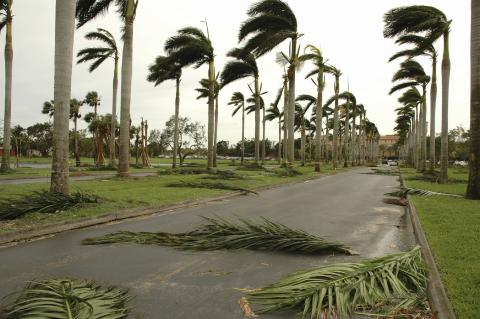













 Table of Contents
Table of Contents








 Table of Contents
Table of Contents
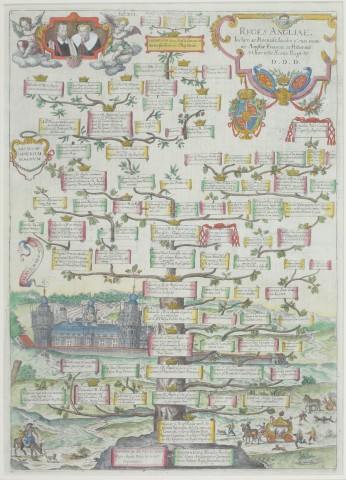





 Table of Contents
Table of Contents

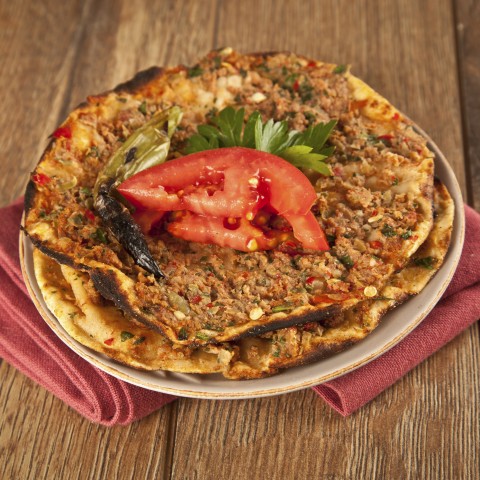
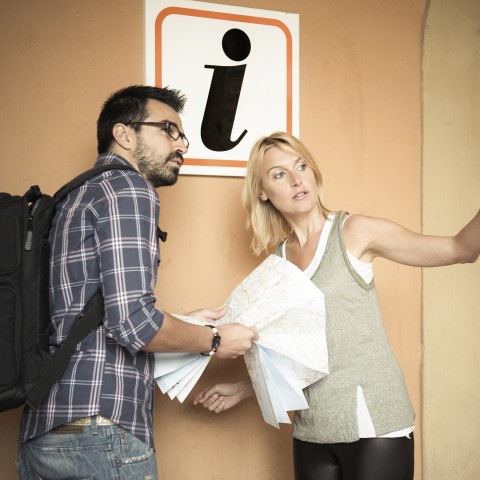
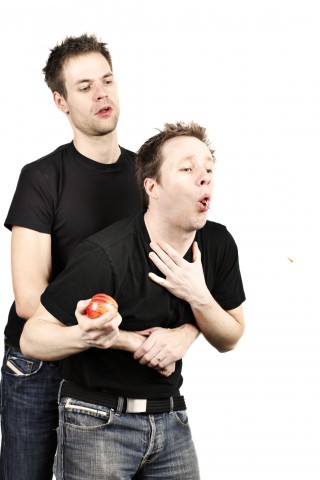
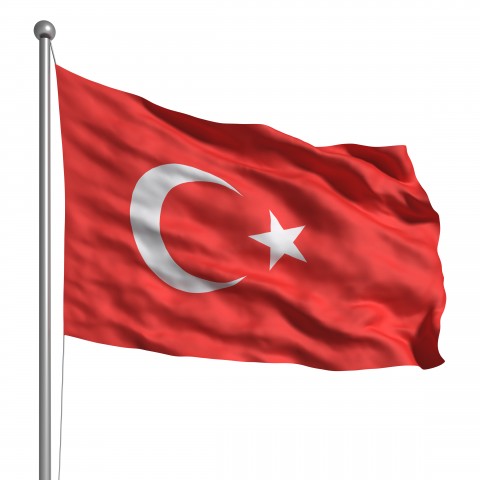

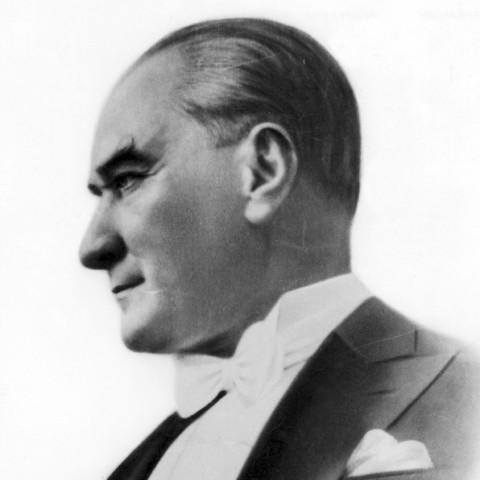


 Table of Contents
Table of Contents































